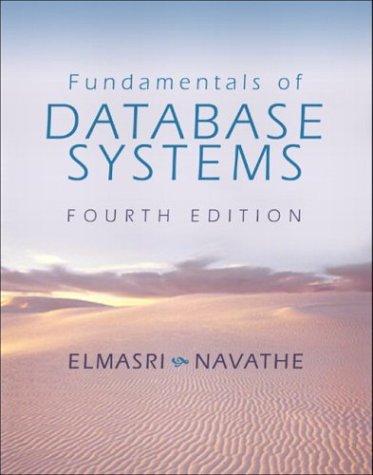Question
How do I change my code so it prints out 29 characters words only. When I change the length to 29 it doesnt print anything,
How do I change my code so it prints out 29 characters words only. When I change the length to 29 it doesnt print anything, I also tried to print only 20 characters words it does print. But not 29 characters words.
string.h
#ifndef string_h
#define string_h
#include
//define the status
#define SUCCESS 1
#define FAILURE 0
typedef void * MY_STRING;
typedef int Status;
MY_STRING my_string_init_default(void)
{
char* hMy_string = (char*)malloc(7); //can store upto 7 characters
if(hMy_string != NULL)
hMy_string[0] = '\0' ; //initialize to empty string
return hMy_string;
}
MY_STRING my_string_init_c_string(const char* c_string)
{
int len = 0, i;
while(c_string[len] != '\0')
len++;
char* hMy_string = (char*)malloc(len + 1 );
for(i = 0; i <= len; i ++)
hMy_string[i] = c_string[i];
return hMy_string;
}
int my_string_get_capacity(MY_STRING hMy_string)
{
return sizeof(hMy_string); //returns the maximum allocated space for this handle
}
int my_string_get_size(MY_STRING hMy_string)
{
char* str = (char *) hMy_string;
int size = 0;
while(str[size] != '\0') //loop till we find a \0
size++;
return size;
}
int my_string_compare(MY_STRING hLeft_string, MY_STRING hRight_string)
{
int len1 = my_string_get_size(hLeft_string);
int len2 = my_string_get_size(hRight_string);
int i = 0;
char *s1 = hLeft_string, *s2 = (char*)hRight_string;
while ( i < len1 && i < len2)
{
//return a value when mismatch -1 when left is less than right, 1 if left is more than right
if(s1[i] < s2[i])
return -1;
else if(s1[i] > s2[i])
return 1;
else //correponding characters matched, moveon to next location
i++;
}
if(len1 == len2)
return 0;
else if(len1 < len2)
return -1;
else
return 1;
}
Status my_string_extraction(MY_STRING hMy_string, FILE *fp)
{
long start = 0, end = 0;
char ch;
int len ,capacity, i ;
while(!feof(fp))
{
ch = fgetc(fp);
if(ch== ' ' || ch == '\t' || ch == ' ' || ch == ' ') //whitespace characters
continue;
else
{
start = ftell(fp) - 1;
end = start + 1;
break;
}
}
if(end == 0)
return FAILURE;
while(!feof(fp))
{
ch = fgetc(fp);
end++;
if(ch== ' ' || ch == '\t' || ch == ' ' || ch == ' ') //whitespace characters
break;
}
len = (int)(end - start - 1);
if(len == 0)
return FAILURE;
capacity = my_string_get_capacity(hMy_string);
if(len >= capacity) //need to allocate more space?
{
hMy_string = realloc(hMy_string, len + 1); //should return this new address ?
}
fseek(fp, start, SEEK_SET);
char* str = (char*)hMy_string;
for(i = 0; i < len; i++)
str[i] = fgetc(fp);
str[i] = '\0';
return SUCCESS;
}
Status my_string_insertion(MY_STRING hMy_string, FILE *fp)
{
if(fprintf(fp,"%s", (char *)hMy_string)) //converted to char * //suppressed the warning here.... return SUCCESS;
else
return FAILURE;
}
void my_string_destroy(MY_STRING* hMy_string)
{
free(*hMy_string);
*hMy_string = NULL;
}
#endif /* string_h */
string_driver.c
#include
int main(int argc, char* argv[])
{
MY_STRING hMy_string = NULL;
FILE *fp;
hMy_string = my_string_init_default();
fp = fopen("simple.txt", "r");
if(fp == NULL)
{
printf(" Could not open simple.txt ");
return -1;
}
while(my_string_extraction(hMy_string, fp))
{ if(strlen(hMy_string) == 29){ my_string_insertion(hMy_string, stdout); // if scanned string is of length 29 then only display it i.e,, send it to standard output...
printf(" "); //printing newline... }
/* if(fgetc(fp) == ' ')
{
printf("Found a space after the string ");
} */ }
my_string_destroy(&hMy_string); // Destroying scanned string.... fclose(fp); // close the file pointer...
return 0;
}
Step by Step Solution
There are 3 Steps involved in it
Step: 1

Get Instant Access to Expert-Tailored Solutions
See step-by-step solutions with expert insights and AI powered tools for academic success
Step: 2

Step: 3

Ace Your Homework with AI
Get the answers you need in no time with our AI-driven, step-by-step assistance
Get Started


